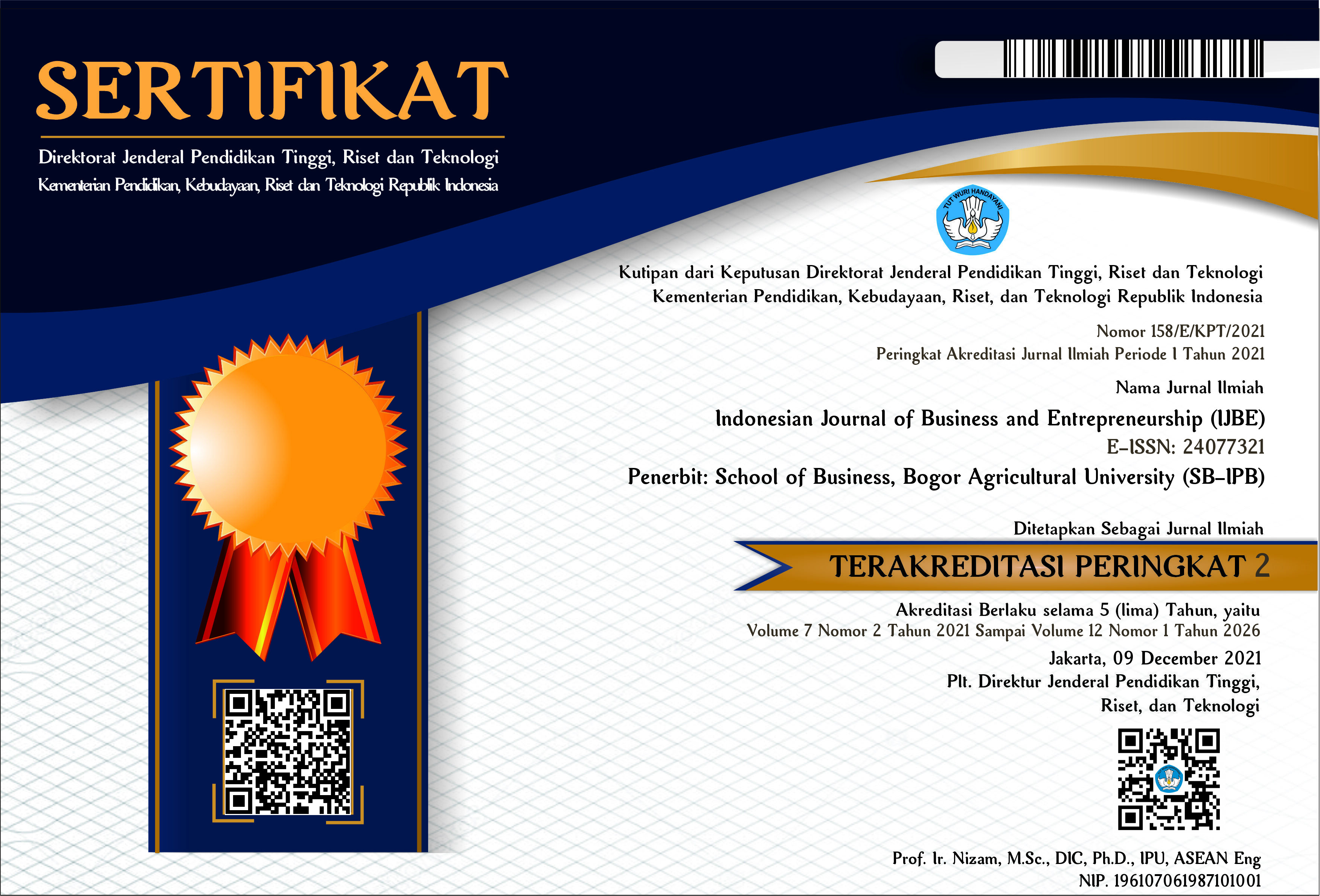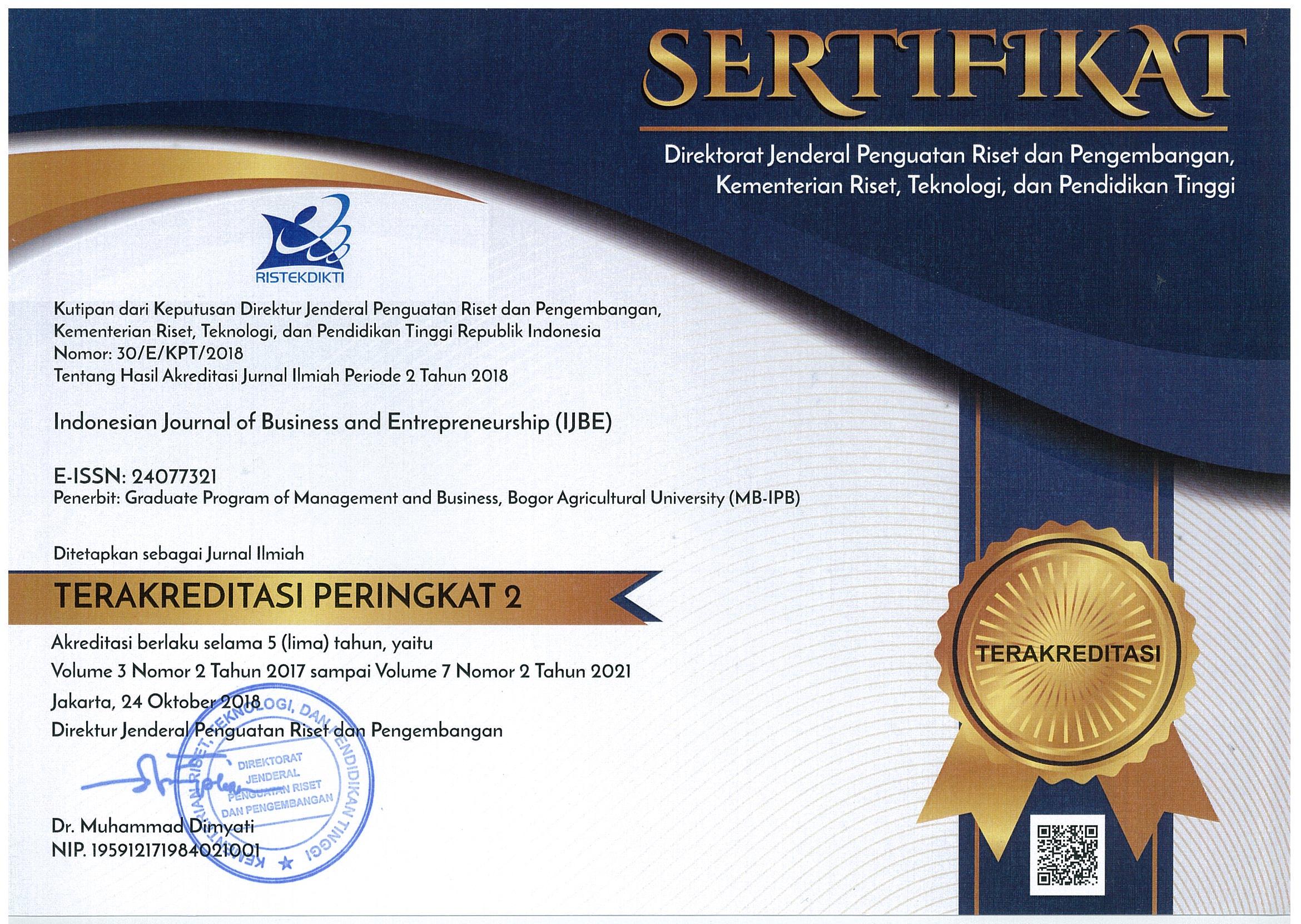THE DEVELOPMENT OF CONCEPTUAL MODEL ON INDONESIAN CONSUMER BEHAVIOR TOWARDS HALAL-LABELED DRUGS
Abstract
There were still very few halal-labeled drugs in Indonesia, which can be caused by low consumer demand. Every consumer has perceived risk on a product, including halal-labeled drugs. Only consumers with good preference towards halal-labeled drugs are willing to take risks by choosing halal-labeled drugs to obtain peace of mind, which is manifested as satisfaction and trust. This study aims to identify how perceived risk on Indonesian people could influence satisfaction and trust, which leads to intention to use and intention to recommend halal-labeled drugs. Data were obtained from 332 Indonesian respondents aged at least 17 years old who were collected by convenience using social media which were then processed by PLS-SEM. This study found that perceived risk naturally can influence satisfaction, which leads to intention to use supported by knowledge and previous use experience, leading to intention to recommend. Meanwhile, perceived risk supported by knowledge can affect trust, which in turn can influence intention to use, and then leads to intention to recommend. In conclusion, knowledge and previous use experience are supporting factors which are required to trigger the consumer preference toward halal-labeled drugs.
Keywords: halal drugs, intention, perceived risk, satisfaction, trust







